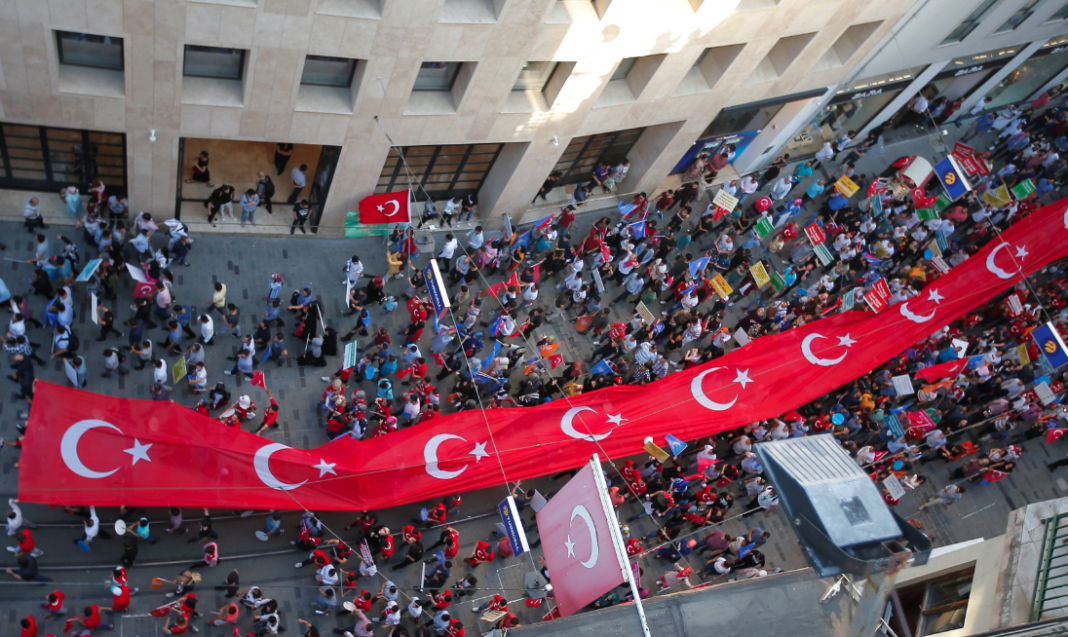By Özgür Hisarcıklıoğlu in Euobserver on March 21, 2023. After months of drama and tension that reached a climax in the last week of February, Turkey’s opposition has chosen Kemal Kılıçdaroğlu, the leader of the Republican People’s Party (CHP), as their presidential candidate.
He will run in the country’s 14 May general election. President Recep Tayyip Erdoğan signed a decree setting the date, ending speculation that he would use the recent earthquake as a pretext to delay the vote to beyond the constitutionally set June 18 deadline.
Kılıçdaroğlu will run as the head of the Nation Alliance, popularly known as the Table of Six for the number of opposition parties it comprises. Besides the CHP, the Nation Alliance includes the moderate-nationalist Good Party (İYİ), one Islamist party, and one centre-right and two conservative parties.
Erdoğan will run as the head of the People Alliance formed by his ruling Justice and Development Party (AK Party), the rightwing Nationalist Action Party (MHP), one leftwing nationalist party with Maoist roots, two Islamist parties, and one Islamist-Kurdish party with alleged ties to a terrorist organisation.
While the main competition will be between these two blocs, the Labor and Freedom Alliance led by the pro-Kurdish Peoples’ Democratic Party (HDP) will play a crucial role in the election’s outcome.
They may nominate their own presidential candidate for the first round of voting and then support Kılıçdaroğlu in a possible second round, or they may decide to support Kılıçdaroğlu from the beginning.
Turks will choose a new parliament along with their president, and the parliamentary election’s outcome is relatively easy to predict. None of the alliances is likely to win a majority.
That, however, does not mean stalemate since parties in the same alliance do not always vote as a monolith. But the Nation Alliance may, especially on critical issues of political reform. It has drafted an Agreement for A Strengthened Parliamentary System, a constitutional amendment for a « strengthened parliamentary system », and a Memorandum of Understanding on Common Policies that set out common objectives for their political agendas.
In this regard, they have, in the main, the support of the Labor and Freedom Alliance. This makes likely parliamentary approval of proposed political reform measures that do not require constitutional amendments. Reforms that do, including a restoration of the parliamentary system, need broader consensus.
The polls are no guide
The presidential election’s outcome, however, is not as easy to predict. To win, a candidate must garner more than 50 percent of valid votes cast in the first or the second round. Either candidate could do that. Also, despite a plethora of Turkish public opinion polls, many of those that are publicly available have methodology problems. Some are little more than political engineering tools. Relying on them to predict the outcome could lead to misperceptions.
There are also concerns about election integrity, despite Turkey’s long tradition of democratic elections that provide a resilient system for counting ballots. But pressure on the media, restrictions on freedom of expression, and the incumbent’s virtually unlimited access to public resources mean that Turkish elections are unfair, even if they are also real and competitive.
The upcoming election is more than a contest between Erdoğan and Kılıçdaroğlu or the parties and alliances that they represent. The real campaign is between their two competing visions.
Kılıçdaroğlu promises change while Erdoğan promises stability. Those who support Kılıçdaroğlu hope that change will lead to greater freedom, welfare, and dignity. Those who support Erdoğan fear change will bring social instability and individual insecurity.
The opposition’s advantage is that they can actually promise change with stability. Erdoğan’s 20 years in power leave him only with the option of scaremongering, conjuring up doomsday scenarios of political fragmentation and chaos if he loses. Division in the opposition over a joint presidential candidate, only recently resolved, gave credibility to Erdoğan’s argument.
Ultimately, the race will hinge on three unknowns: the Nation Alliance’s cohesiveness, the stance of the Labor and Freedom Alliance, and the current government’s ability to keep the currency from collapsing again before the election.
The Nation Alliance may have chosen the CHP’s Kılıçdaroğlu as its joint candidate, but that is no guarantee that voters from the other opposition parties will opt for him.
The Labor and Freedom Alliance’s position on his candidacy also remains a wild card even if an official announcement of support may be close. As for the currency, Turkey’s trade imbalance is putting pressure on the lira, which the country’s central bank will not be able to support indefinitely. Another devaluation is in the offing, but whether it comes before or after the election is key.
At this point, all that can be said with certainty is that a tight presidential race awaits.

